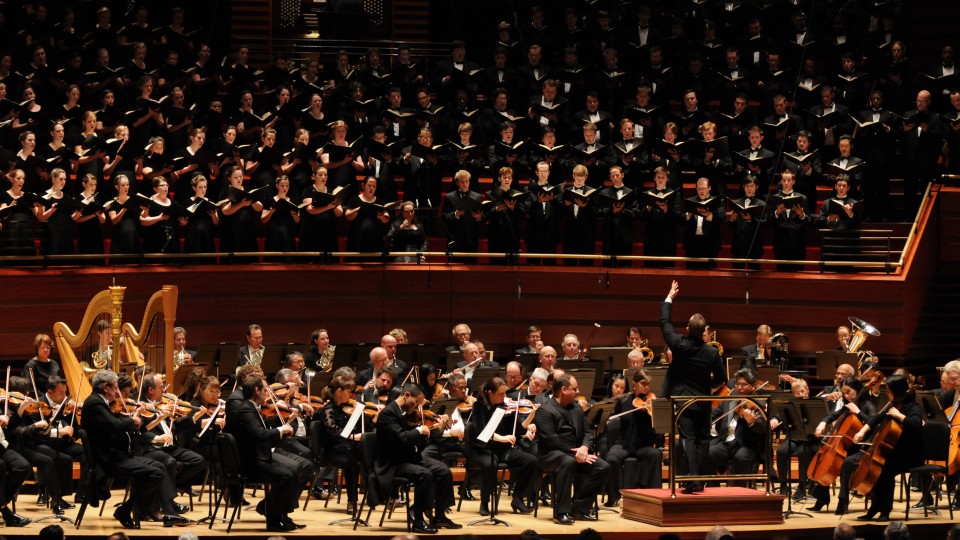
- This event has passed.
Mozart Requiem – Philadelphia Orchestra and Symphonic Choir
April 26 - April 28

Performance Details
Nathalie Stutzmann Conductor
Erin Morley Soprano
Sara Mingardo Contralto
Kenneth Tarver Tenor
Harold Wilson Bass
Philadelphia Symphonic Choir
Joe Miller Director
Schumann Symphony No. 4
Mozart Requiem
Mozart’s Requiem is shrouded in mystery; left uncompleted at the end of his life amid the torments of illness and financial woes, it is imbued with Mozart’s own dark thoughts that the commissioning of a requiem, while a boon to his spare funds, was somehow a sign that his own life was in danger. Myths swirl around the “mysterious stranger” who ordered the piece, including one theory that the commissioner was Mozart’s jealous contemporary and competitor Antonio Salieri, as depicted in the play and film Amadeus. History shows that it was more likely that the dubious figure was a nobleman in the habit of acquiring works by gifted composers and passing them off as his own. In a creative frenzy, pouring out his genius in an attempt to improve his fortunes, Mozart was more productive in his final year than in any other period in his life. His Requiem’s “Dies irae” (Day of Wrath) blazes with theatricality, and his ineffably sorrowful “Lacrimosa” remains one of the most beautiful passages in all of classical music. It’s conducted here by Principal Guest Conductor Nathalie Stutzmann, whose beginnings as a contralto renowned for early music grounds her deep affinity with the work; her reading of this timeless score has been called “a wonder to hear” (ArtsATL). The soloists include the “diamond-bright (Presto) soprano Erin Morley; the “spellbinding” (Gramophone) contralto Sara Mingardo; Kenneth Tarver, whose distinctive tenor boasts “an ideal blend of velvet and steel” (Gramophone); and the “profound bass” (Bachtrack) Harold Wilson.
The concert begins with Schumann’s brooding, passionate Fourth Symphony. Written during a crucial time in his life, shortly after he married the virtuoso pianist and composer Clara Wieck, Schumann’s Fourth was considered innovative, even revolutionary in its time. He would return to it 10 years after its first writing, reshaping and restructuring it to be the version you will hear in these concerts.
